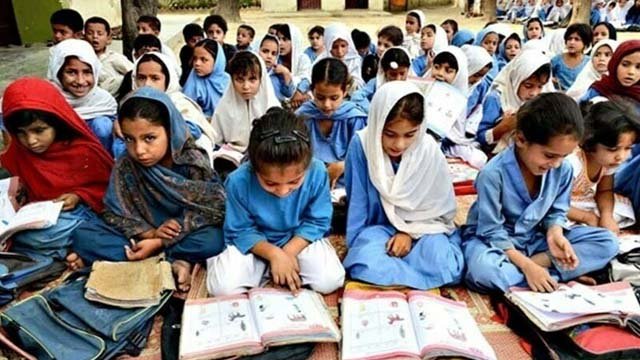Pakistan’s prison system is facing severe challenges, particularly in facilities for women and juvenile prisoners.
A new report highlights the widespread issue of overcrowding, with women prisoners often kept in separate barracks within men’s prisons due to the lack of dedicated facilities.
According to the report, out of the four prisons for women in Pakistan, three are located in Sindh (Karachi, Hyderabad, and Sukkur), while Punjab has only one.
In other regions, women are kept in separate sections within men’s prisons, exposing them to significant poor living conditions.
The report also points out that the country’s prison population has exceeded official capacity by 152 percent, with 75 percent of inmates being under trials awaiting or undergoing trial.
The report released by the National Commission for Human Rights (NCHR) and the National Academy of Prison Administration reveals that certain prisons are operating at 200 to 300 percent of their official capacity. Karachi Central Jail, with an official capacity of 2,400 prisoners, currently filled with 8,518 prisoners, representing a 250 percent overcrowding rate.
As of 2024, the total number of prisoners in Pakistan stands at 102,026, with 74,918 undertrial prisoners.
Over the last 24 years, the prison population has increased by 29 percent, and the number of female prisoners has risen by 11.43 percent since 2018.
Additionally, over 1,580 juvenile prisoners are currently incarcerated, with female juvenile prisoners comprising only 0.7 percent of the total.
The report also highlights the presence of more than 1,100 foreign prisoners, the majority of whom are from Afghanistan, India, Bangladesh, and Nigeria.
The overcrowding issue is particularly aggravated by the high number of people incarcerated for drug-related offenses.
The report calls for judicial reforms and urges the adoption of non-custodial sentencing options for minor crimes.
It also advocates for community-based alternatives to punishment, such as community service, and recommends providing treatment for individuals involved in drug-related offenses instead of imprisonment.
Additionally, the report notes a slight increase in the number of death row prisoners, from 3,604 in 2023 to 3,646 in 2024. It stresses the need to bring Pakistan’s prison laws in line with international standards to effectively address these growing problems.
To tackle overcrowding, the report suggests activating the parole and probation system and diverting mentally challenged individuals to mental health facilities.
The National Commission for Human Rights (NCHR) calls for alternative sentencing measures and a more humane approach to dealing with the prison crisis in the country.






